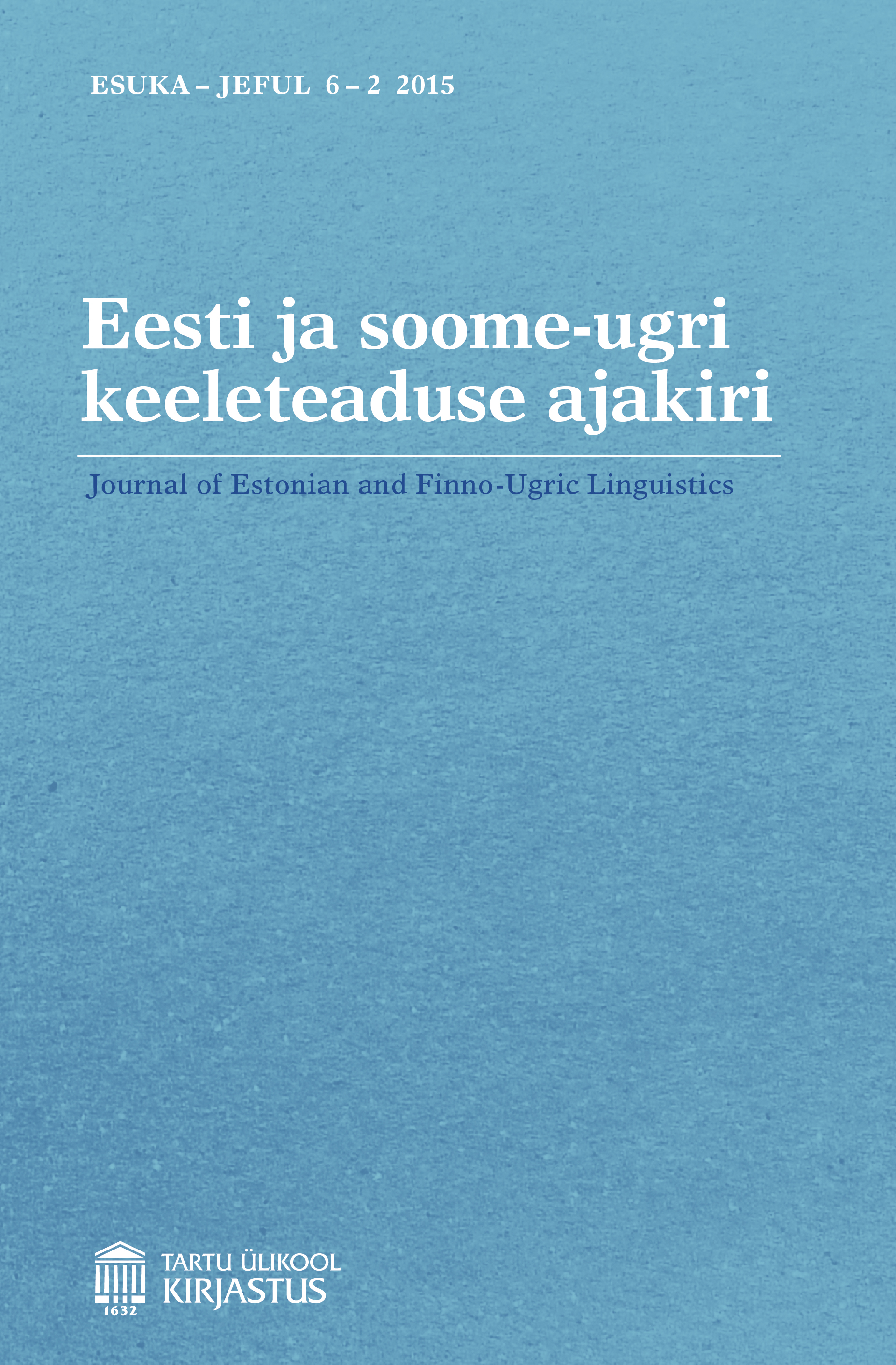Observations on non-possessive usages of personal markers (possessive suffixes) in Nganasan
DOI:
https://doi.org/10.12697/jeful.2015.6.2.11Keywords:
Nganasan, possessive suffixes, definiteness, possession, epistemic groundingAbstract
This paper aims at a systematic overview of the non-possessive usages of possessive (relational) suffixes in Nganasan. In the analyzed corpus, the non-anchoring usage types of the 3rd person suffix (including the direct anaphoric and situational usages), are less frequent than relational usages. The distribution of the suffixes suggests that in traditional narratives, the primary topic of the discourse tends to be marked with a deictic (2nd person) and the secondary topic with an anaphoric (3rd person) suffix. The language data also show that in Nganasan, the concept of semantic uniqueness does not suffice to explain the occurrence of the 3rd person suffix as definiteness marker, the topical status of the referent being decisive. Furthermore, predicting the (possessive vs. non-possessive) reading of the relational suffix solely by the conceptual type of the host noun is in case of some lexemes impossible and therefore, contextual information gains crucial importance.Downloads
Downloads
Published
2015-12-18
How to Cite
Zayzon, R. (2015). Observations on non-possessive usages of personal markers (possessive suffixes) in Nganasan. Eesti Ja Soome-Ugri Keeleteaduse Ajakiri. Journal of Estonian and Finno-Ugric Linguistics, 6(2), 259–278. https://doi.org/10.12697/jeful.2015.6.2.11
Issue
Section
Articles


